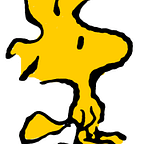Fascism and Silliness in Chaplin’s ‘The Great Dictator’
In the controversial-for-its-time satire The Great Dictator (1940), Charles Chaplin plays both an Adolph Hitler-like dictator and a good-natured Jewish barber who is then mistaken for the dictator. Hijinks and tragedy and speechifying ensue. The movie is not always as funny as it could be and is frequently too innocent for its own good (a common complaint with Chaplin). But imperfect as it is, The Great Dictator might be the peak of Chaplin’s career.
For those who had a problem with Chaplin making a comedy about the Nazis, he replied — in a New York Times piece reproduced in the elegantly packaged, illustrated booklet that comes with the 2011 Criterion Collection release — that horrible events often breed comedy. Chaplin noted one of his most popular slapsticks, 1925’s The Gold Rush, had been inspired by the horrific story of the Donner Party. To Mel Brooks’s way of thinking, there was no more effective way of deflating the Nazi’s evil pomposity than by ridicule, as he showed to such devastating effect in The Producers and elsewhere.
However, Brooks’s movie came well after the war; a war, by the way, in which Brooks gained first-hand knowledge of the evil in question by coming face to face with Nazis as an infantryman. In 1938, when Chaplin first announced The Great Dictator, he was apparently asked by Jewish friends in Hollywood to reconsider. There was a reasonable fear that offending Hitler, who was not only thin-skinned but very attuned to popular culture, would boomerang by bringing down reprisals on European Jews. Chaplin’s response was that surely things couldn’t get any worse. Though clearly his head and heart were in the right place with The Great Dictator, that response indicates he was still naive about the depth of danger posed by the mad autocrat.
But given the prevalence of dedicated pro-Nazi isolationist forces in America, and the fact that despite being a gentile Chaplin himself was regularly denounced in Berlin as a decadent Hollywood Jew, Chaplin’s bravery in moving forward with the project was impressive. By making The Great Dictator, he was putting a target on his back as an avowed enemy of the Nazis years before it was clear who would prevail in the world struggle.
This was also a time when Hollywood movies were regularly and cravenly stripped of content that could potentially offend the Nazis and thus lose out on revenue from German theaters if banned. One only has to look at the dispiriting list of China-related compromises American studios—the fallout over Martin Scorsese’s Kundun alone ensured few dared rile Beijing the same way — to see how little has changed.
In terms of the movie itself, as geopolitical satire goes, The Great Dictator is somewhat hit and miss; Groucho Marx’s Duck Soup is far more cutting. Too many of the purposeful jabs are overly broad and without sting. Chaplin’s satire tended to work better in the abstractness of the silent pictures; imagine how much less of an impact Modern Times might have had if burdened with dialogue.
But Chaplin’s Hitler figure, the stubby little maniac Hynkel, is a genius piece of work. Addressing denizens of the fictitious country of Tomania, Chaplin splutters and rages in tone-perfect nonsense-German (words like “sauerkraut” and “weinerschnitzel” predominate). It’s a portrait that cuts a demonic figure down to size. Rather than towering over the movie, Hynkel comes across as just so much blather and nonsense, a would-be conqueror who cannot even stop the bullying of a fellow dictator, the clearly Mussolini-esque Napaloni (Jack Oakie, dominating every scene he’s in).
Meanwhile, Chaplin also plays a gentle barber who is shocked to see what is happening to his fellow Jews. He falls in love with a sweet-seeming girl played with classically Chaplin vulnerability by Paulette Goddard. Several contretemps later, the barber is mistaken for Hynkel and ultimately addresses a Nuremberg-size rally with a simple address that pleads for humanity and generosity of spirit.
What is most surprising is how well Chaplin’s voice comes across; this was his first work in sound. Though the physical comedy still predominates (there are some ill-considered slapstick routines with stormtroopers barreling through the ghetto), his light and mannered tone brings a delicately cutting edge to the dialogue. The clunkiness of Chaplin’s final, direct-to-the-camera address weighs down some of the defter satire that had preceded it (the justifiably famous bit with Hynkel playing with the globe like a spoiled child), and keeps the movie from true masterpiece status.
That being said, The Great Dictator is an adventurous movie that stared evil in the face long before much of Hollywood thought it was possible. There are also more genuine laughs here than in almost any of Chaplin’s other, more lachrymose silent Tramp comedies, pointing the way towards 1947’s dark and cutting Monsieur Verdoux. It was not until that movie that Chaplin finally shed the Tramp persona that both made his career and imprisoned it.
A version of this article was first published at filmcritic.com.
Title: The Great Dictator
Director/writer: Charles Chaplin
Cast: Charles Chaplin, Paulette Goddard, Jack Oakie
Studio: United Artists
Year: 1940
